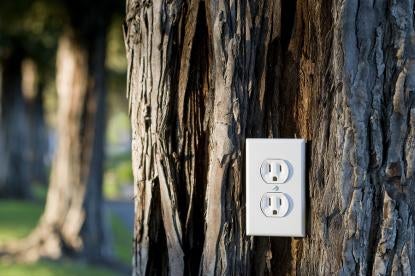On April 5, the Indiana Court of Appeals affirmed the Indiana Utility Regulatory Commission (IURC) order in Cause No. 44576, which authorized a rate increase for Indianapolis Power & Light Company (IPL). Citizens Action Coalition, Indiana Community Action Association et al v. Indianapolis Power & Light Company, et al, Court of Appeals Case No. 93A02-1604-EX-804.
The appeal of the IURC’s March 16, 2016, order was undertaken by Citizens Action Coalition, Indiana Community Action Association, Indiana Coalition for Human Services, Indiana Association for Community Economic Development, National Association of Social Workers Indiana Chapter, and Indiana State Conference of the National Association for the Advancement of Colored People, collectively referred to as the joint intervenors.
The joint intervenors claimed that the order lacked adequate support and challenged the lack of findings addressing 1) the impact of the declining block rate (DBR) upon energy conservation and 2) the effect of DBR on elderly and African-American customers. The joint intervenors also challenged the IURC’s rejection of a proposal for 25% low-income customer subsidies and the rejection of proposed mandatory data reporting by IPL.
The court declined to reweigh the evidence and considered the rate increase as a whole. The court stated that: “Challengers have the burden of showing there is insufficient evidence in the record to support the findings of the Commission; they cannot merely cite to other evidence of record which would support a determination more favorable to their position.” The court found that the IURC’s findings contained “enough detail such that we can determine whether the order is reasonable, within the wide discretion of the Commission.”
In addition, the joint intervenors argued that the IURC must make findings with respect to disparate socioeconomic impact of rate increases. The court stated that the joint intervenors had not shown that the IURC had a statutory duty to make any findings at all in this regard. The court stated that “Joint Intervenors were permitted to intervene in a rate-making case, but this did not change the nature of the proceeding from rate-making to a broad socio-economic inquiry akin to that which might be undertaken by the General Assembly.” The court added that the “Commission is to approve rates that are just and reasonable. . . . Joint Intervenors are not entitled to specific findings on propositions they have injected unless it is a matter material to the rate decision.”
With respect to the socio-economic evidence, the court stated that the “drawing of lines in the face of myriad considerations and competing concerns is traditionally a function performed by our General Assembly.”
The court concluded that the intervenors had not shown that the IURC “failed to conform to statutory standards or failed to make requisite findings.”
By separate order, the court granted the intervenors’ motion to dismiss the IURC as a party to this appeal. The court explained that “[b]ecause the Commission acted as a fact-finding administrative tribunal and no statute or administrative provision expressly makes the Commission a party on appeal, it is not a proper party on appeal from its own decision.”








 i
i


